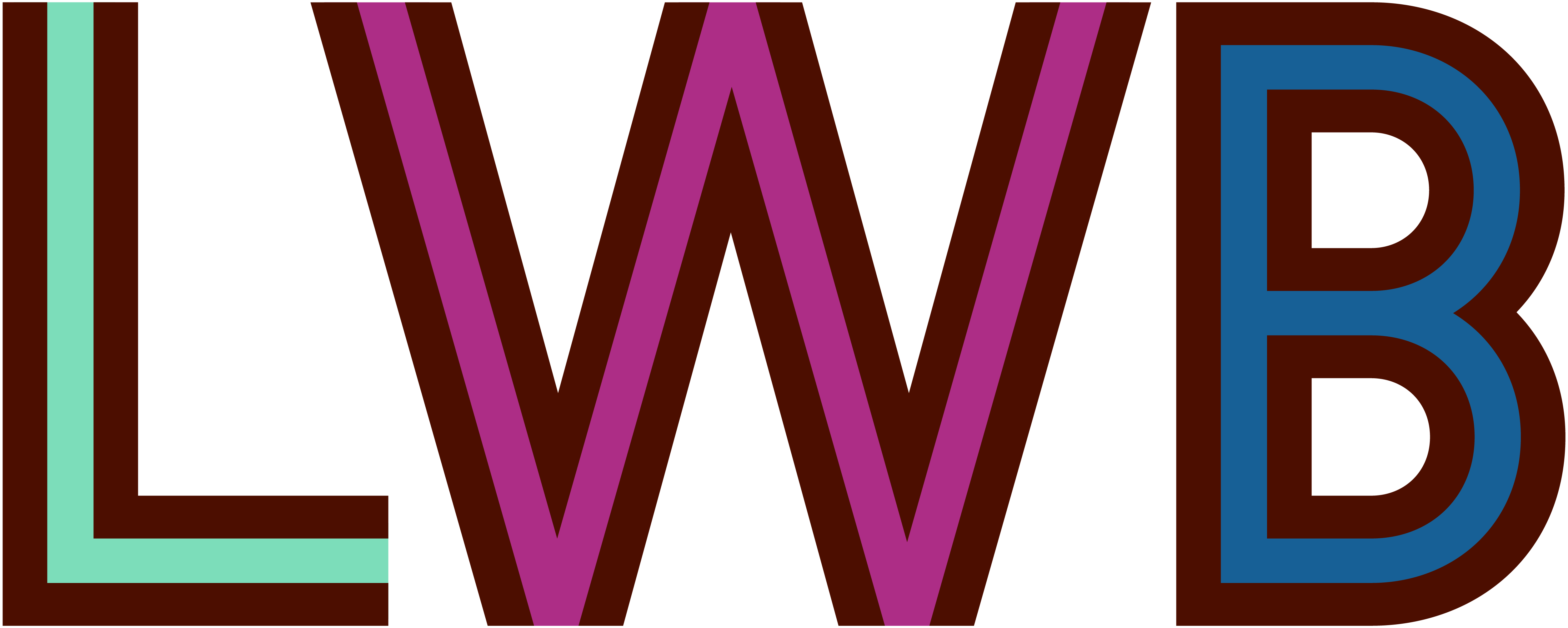Project Title
Connection Through Play: Transforming Education in Cambodia and Uganda
In Uganda and Cambodia, rote memorization and corporal punishment are the standard in education systems, even in preschool. When establishing schools in these countries, LWB found a complete lack of local familiarity with educational arts and crafts, creative storytelling, and self-expression in schools. Further research has confirmed this is the situation nationwide in both countries. No one has yet attempted to change the standard approach to early childhood education to center on positive relationships and play in these countries.
Idea
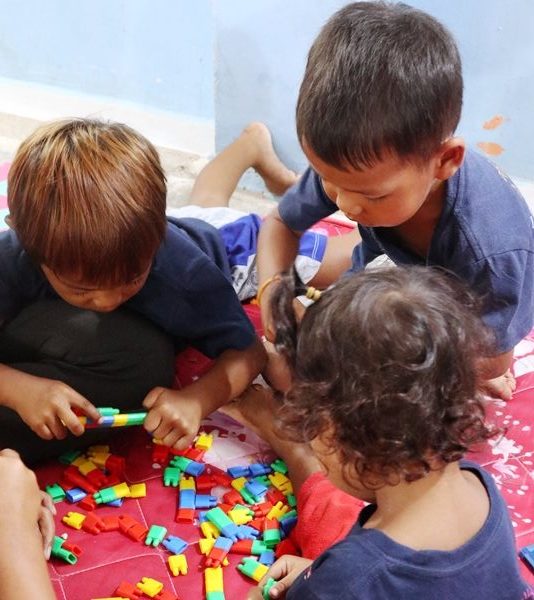
Our bold idea is to provide teacher training in Model Learning Centers based on learning and discovery through play in a resource rich environment that meets the needs of the whole child. Our proposal is based on LWB’s current successful holistic, child-focused approach, recognizing the overall health benefits of early positive connection through playful caregiving, including lifelong good mental health and capacity for resilience and empathy.
Problem
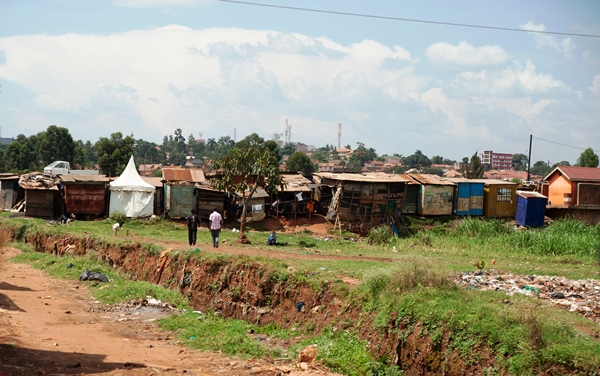
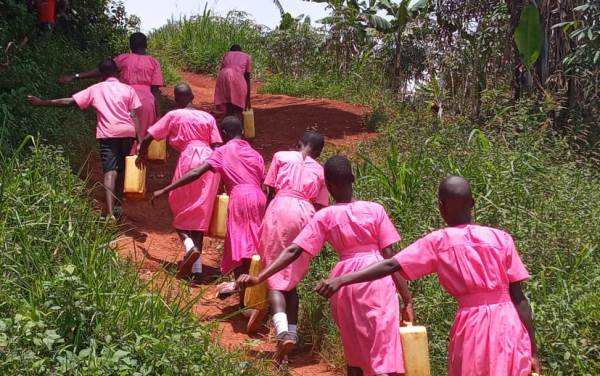
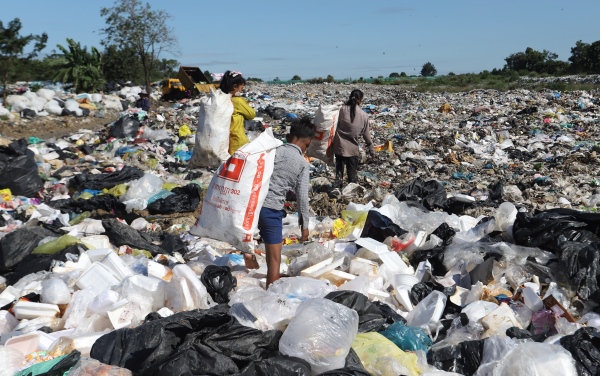
In Cambodia and Uganda, rote memorization and corporal punishment, rather than play and attachment, are currently the norm in Early Childhood Education (ECE). Few age-appropriate creative materials are available, and schools often lack basic supplies and amenities. Many Cambodians and Ugandans face significant barriers to education, including poverty, unsafe roads, exploitation, lack of water, and malnutrition.
Cambodia completely lacks teacher training and educational expertise to optimize early childhood development. Underserved regions lack schools. Additionally, Cambodians face significant challenges after the Khmer Rouge genocide killed one quarter of the population in the 1970s and as a result of a secret US carpet-bombing campaign that devastated villages and destabilized the country politically.
In Uganda, 38% percent of children live in poverty, 18% of which are classified as extreme poverty. Private ECE programs exist, but poor families cannot afford them. Preschools are unregulated and most don’t meet growth and development best practices. Most preschools have poor infrastructure and unqualified staff, and they lack age-appropriate supplies. An astounding 99.5% of children skip ECE entirely, especially in rural areas.
Proposed Solution
LWB will establish four Model Training Centers in Uganda and two in Cambodia to train teachers in learning and discovery through play in a resource-rich environment that meets the needs of the whole child, as well as an additional five satellite centers in impoverished regions in Cambodia. LWB’s successful, holistic, child-focused schools have already changed impoverished students’ lives in these countries by reducing barriers to education. The proposed model centers will disseminate this approach nationally, fundamentally changing early childhood education in these countries.
Impact
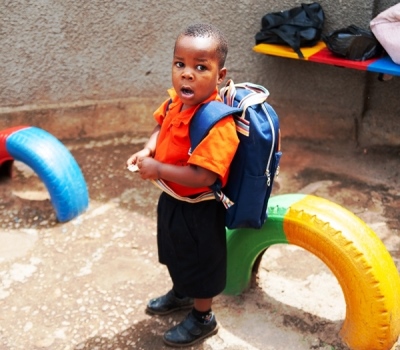
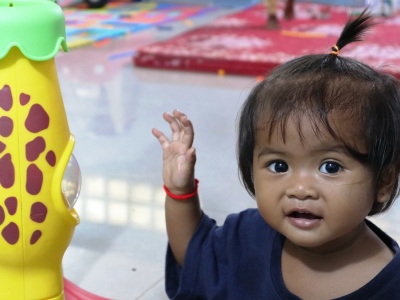
Short- and Long-term Impacts
Approximately 250,900 students of program graduates will benefit from their teachers’ training over the five-year grant period and an additional 2,073,250 students the five years after. Approximately 3,900 impoverished children enrolled in the Centers will experience focused, expert care over the grant period, with an additional 8,250 in the following five years. All will experience a deep, lifelong impact.
Who Benefits
Impoverished students aged 0 to 6 enrolled in Model and Satellite Centers will benefit directly from focused, expert caregiving. All future students of program graduates will benefit from the new, discovery-learning approach. All Cambodian and Ugandan children will benefit when connection and play-based pedagogy becomes the norm in these countries.
Expected Outcomes
Early Childhood Education in Cambodia and Uganda will be transformed from rote-memorization to play-based learning. Students nationwide will experience the positive, lifelong impact of play-based education.
Prioritizing Local Communities
LWB will provide resources to address communities’ education barriers, including employment, clean water, all-day childcare, and healthcare. Meeting impoverished families’ needs encourages enrollment and strengthens parents’ ability to nurture their children.
Centering Those Proximate
Model Centers are planned near education colleges to boost teacher recruitment and facilitate idea exchange. Graduating teachers will receive educational resource kits to support dissemination.
Diversity, Equity, and Inclusion
Cambodia
Formally, the Cambodian government espouses education for all children regardless of gender, poverty, disability, or minority status. However, overcoming discrimination is complex and involves not only money but centuries of cultural attitudes. A 2006 UNICEF examination showed the most frequently excluded groups are girls and impoverished children. Children with disabilities and ethnic minorities are less frequently identified.
Uganda
Disability is Uganda’s biggest inclusion issue. While 16% of Ugandan children have a disability, 1.6% of pre-primary school students are disabled. Access, quality, and accommodations are limited, and staff are generally unequipped to help students with special needs. In addition, discriminatory beliefs keep disabled children from school.
Disability
LWB’s method was originally developed for children with special needs living in Chinese orphanages kept from school due to social stigma . Actively recruiting disabled children for ECE where accommodations are simpler than for older children will reduce stigma communitywide.
Poverty
Impoverished children and children from remote areas rarely attend ECE. This proposed project specifically targets these underserved children. Many of LWB’s in-country staff who design projects grew up impoverished in Cambodia and Uganda and understand intimately the challenges impoverished students face.
Gender
School-age girls are kept from school to perform childcare. LWB centers provide childcare and nutrition for the youngest children, freeing older sisters to attend school.
Ethnic and Religious Diversity
LWB’s Centers will be open to teachers and children of all faiths, tribes, and ethnic groups. LWB will recruit teachers from minority religions and ethnic groups and offer instruction in local languages.
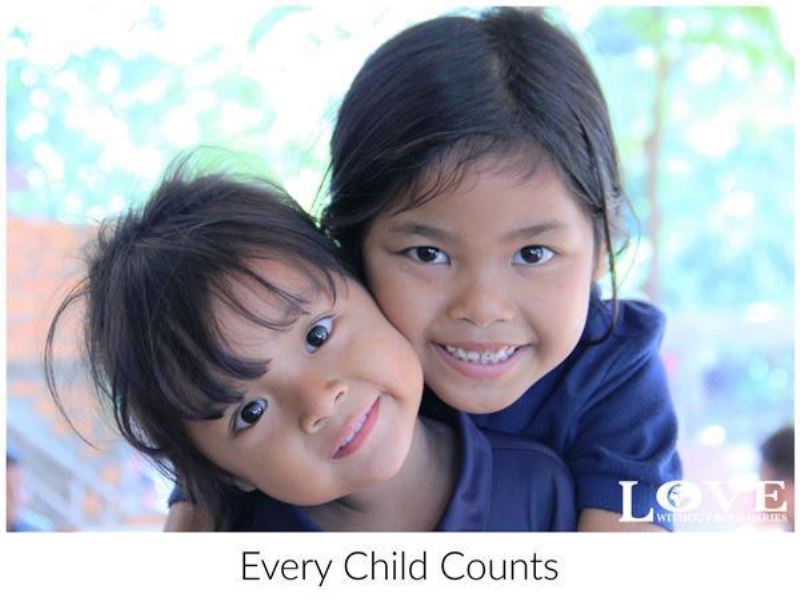
References
Cambodian Educational Issues
Jeong, H. (2014). Legacy of Khmer Rouge on skills formation in Cambodia. Journal of International and Area Studies, 21(1), 1-17.
Vo, J. (2016). Breaking the cycle: Shifting towards effective education reform to overcome poverty and abate Cambodia’s sex industry. Suffolk Transnational Law Review, 39(2), 481-507.
Islam, Ouch, C., Smyth, R., & Wang, L. C. (2016). The long-term effects of civil conflicts on education, earnings, and fertility: Evidence from Cambodia. Journal of Comparative Economics, 44(3), 800–820. https://doi.org/10.1016/j.jce.2015.05.001
Rao, & Pearson, V. (2015). Early Childhood Care and Education in Cambodia. International Journal of Child Care and Education Policy (Seoul), 3(1), 13–26. https://doi.org/10.1007/2288-6729-3-1-13
Islam, Ouch, C., Smyth, R., & Wang, L. C. (2017). The Intergenerational Effect of Cambodia’s Genocide on Children’s Education and Health: The Intergenerational Effect of Cambodia’s Genocide. Population and Development Review, 43(2), 331–353. https://doi.org/10.1111/padr.12047
Cambodia: Cambodia general education improvement project. (2022). MENA Report.
Hart. (2019). Rural Cambodia: The Art of Education. The Reading Teacher, 72(5), 660–661. https://doi.org/10.1002/trtr.1748
Berkvens, J.B. Y. (2017). The Importance of Understanding Culture When Improving Education: Learning from Cambodia. International Education Studies, 10(9), 161–. https://doi.org/10.5539/ies.v10n9p161
Cheung, & Berlin, M. P. (2015). The Impact of a Food for Education Program on Schooling in Cambodia: Impact of Food for Education Program. Asia & the Pacific Policy Studies, 2(1), 44–57. https://doi.org/10.1002/app5.21
Bunlay, N., Wright, W., Sophea, H., Bredenburg, K. & Singh, M. (2010). Active- learning pedagogies as a reform initiative: The case of Cambodia. USAID/EQUIP. Retrieved from http://www.equip123.net/docs/E1-ActiveLearningPedagogy-Cambodia.pdf
Tan, C. (2006). Education reforms in Cambodia: Issues and concerns. Educational Research for Policy and Practice, 6(1), 15-24. Doi: 10.1007/s10671-007-9020-3
No, F., Taniguchi, K., & Hirakawa, Y. (2016). School dropout at the basic education level in rural Cambodia: Identifying its causes through longitudinal survival analysis. International Journal of Educational Development, 49, 215–224. https://doi.org/10.1016/j.ijedudev.2016.03.001
Tandon, P. & Fukao, T. (2015). Educating the next generation: Improving teacher quality in Cambodia (Online-Ausg.). World Bank Group. https://doi.org/10.1596/978-1-4648-0417-5
Maeda, M. (2008). Power relations among actors in development cooperation: Patterns, concepts and approaches in a Japanese-assisted teacher training project in Cambodia. International Journal of Educational Development, 28(3), 359–360. https://doi.org/10.1016/j.ijedudev.2007.05.005
Gravelle, M. (2012). Dilemmas in Development Raised by a Teacher Training Project in Cambodia. Compass (Eltham), 1(2). https://doi.org/10.21100/compass.v1i2.25
King, E.F. (2018). Developing teacher capacity in Cambodia: an expanded model. Asian Education and Development Studies, 7(1), 2–14. https://doi.org/10.1108/AEDS-06-2017-0053
Cambodian Health and Nutrition Issues
Behrman, J. (1996). The impact of health and nutrition on education. World Bank Research Observer, 11(1), 23-37. Doi: 10.1093/wbro/11.1.23
Burleson, S. E. & Thoron, A. C. (2014). Maslow’s hierarchy of needs and its relation to learning and achievement. Institute of Food and Agricultural Sciences: University of Florida. Retrieved from https://edis.ifas.ufl.edu/pdffiles/WC/WC15900.pdf
Morley, R. & Lucas, A. (1997). Nutrition and cognitive development. British Medical Bulletin, 53(1), 123-134. Retrieved from https://pdfs.semanticscholar.org/eb3a/0cf6daf5871fc90b571dfff9fe99d608 c474.pdf
Stein, Z. & Stusser, M. (1987). Effects of early nutrition on neurological and mental competence in human beings. Psychological Medicine, 15(4), 717-726.
Ugandan Educational Issues
Sserwanja, Q., Kawuki, J., & Kim, J.H. (2020). Increased child abuse in Uganda amidst COVID-19 pandemic. Journal of Paediatrics and Child Health, 57(2), 188-191. DOI: 10.1111/jpc.15289
Tumwesige, J. (2020). Covid-19 educational disruption and response: Rethinking e-learning in Uganda. Konrad Adenauer Stiftung. Retrieved from https://www.researchgate.net/profile/Josephine-Tumwesige/publication/342392949_COVID-19_Educational_Disruption_and_Response_Rethinking_e-Learning_in_Uganda/links/5ef21c5292851c3d231eb475/COVID-19-Educational-Disruption-and-Response-Rethinking-e-Learning-in-Uganda.pdf
Ssenkusu, P., Ssempala, C. & Vianney Mitana, J. M. (2021). How Covid-19 Pandemic might lead to appreciating pedagogies driven by the multiplicity of intelligence: A case of the Ugandan experience. International Journal of Educational Research Review, 6(4), 355-368 . Retrieved from https://dergipark.org.tr/en/pub/ijere/issue/64800/1012374
Namanya, A.M. (2019). Teachers’ understanding of classroom practices that promote quality education in Ugandan Primary Schools. University of Pretoria Institutional Repository. Retrieved from https://repository.up.ac.za/handle/2263/71739
Research on Play and Learning
Lego Foundation. (2022). The Scientific Case for Learning through Play. Retrieved from
https://learningthroughplay.com/explore-the-research/the-scientific-case-for-learning-through-play/
Additional Sources from Lego Foundation
https://cms.learningthroughplay.com/media/wmtlmbe0/learning-through-play_web.pdf
https://www.unicef.org/sites/default/files/2018-12/UNICEF-Lego-Foundation-Learning-through-Play.pdf
Chu, J. & Schulz, L.E. (2020). Play, Curiosity, and Cognition. Annual Reviews of Developmental Psychology. [Link to pdf]
Muentener, P., Herrig, E., & Schulz, L.E. (2018). The efficiency of infants’ exploratory play is related to longer-term cognitive development. Frontiers in Psychology. [Link to open access article]
Shnediman, L., Gweon, H., Schulz, L.E., & Woodward, A. (2016). Learning from others and spontaneous exploration: A cross-cultural investigation. Child Development, 87(3), 723-735.
[Link to pdf]
Smith, P. & Pellegrini, A. (2013). Learning Through Play. Child Encyclopedia. Retrieved from
https://www.child-encyclopedia.com/play/according-experts/learning-through-play
Weisberg, D. D. S., Hirsh-Pasek, K., & Golinkoff, R. M. (2013). Guided play: Where curricular goals meet a playful pedagogy. Mind, Brain, and Education, 7(2), 104–112.
Schulz, L. E., & Bonawitz, E. B. (2007). Serious fun: Preschoolers engage in more exploratory play when evidence is confounded. Developmental Psychology, 43(4), 1045–1050. http://doi. org/10.1037/0012-1649.43.4.1045
Pyle, A., & Danniels, E. (2017). A Continuum of Play-Based Learning: The Role of the Teacher in Play-Based Pedagogy and the Fear of Hijacking Play. Early Education and Development, 0(0), 1–16. http://doi.org/10.1080/10409289.2016.1220771
Milteer, R. M., Ginsburg, K. R., Council on Communications and Media, & Committee on Psychosocial Aspects of Child and Family Health. The importance of play in promoting healthy child development and maintaining strong parent-child bond: Focus on children in poverty. Pediatrics, 129, e204–e213.
Holmes, R. M., Romeo, L., Ciraola, S., & Grushko, M. (2015). The relationship between creativity, social play, and children’s language abilities. Early Child Development and Care, 185(7), 1180-1197.
Lillard, A. S., Lerner, M. D., Hopkins, E. J., Dore, R. A., Smith, E. D., & Palmquist, C. M. (2013). The impact of pretend play on children’s development: A review of the evidence. Psychological Bulletin, 139, 1-34.
